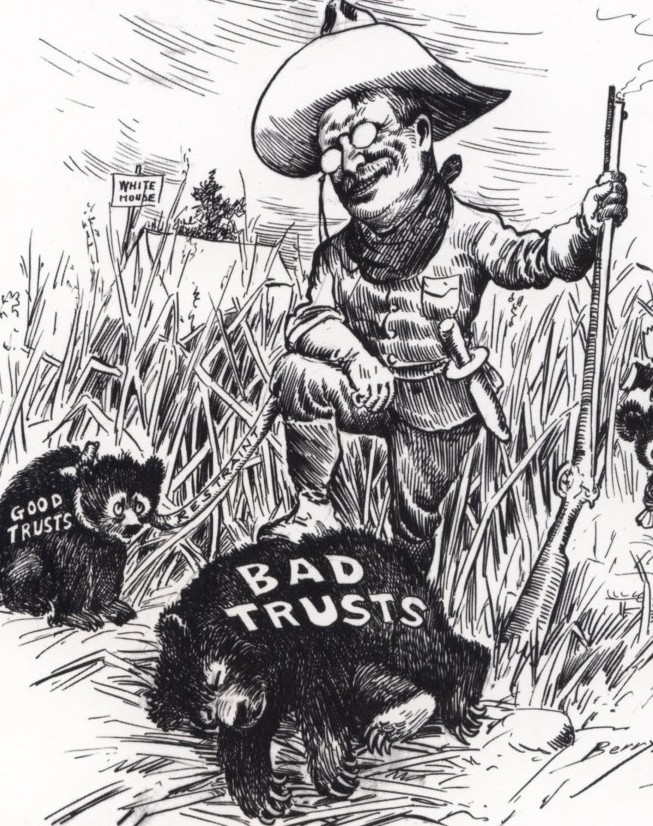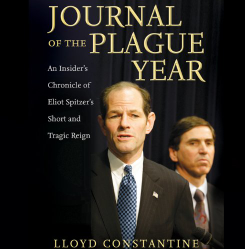The June 11, 2019 edition of the PBS “Nightly Business Report” was startling because the 1, 2, 3, 4 top stories were all antitrust. Here be it and see it.
Uno: Ten state attorneys general sue to block the Sprint/T-Mobile merger.
Dos: A federal judge may unscramble the CVS/Aetna merger consummated in 2018.
Tres: Trump wonders aloud about the competitive effects of the proposed merger of United Technologies and Raytheon.
Cuatro: The House Judiciary Committee began its much-heralded antitrust oversight hearings, squarely targeting Amazon, Apple, Facebook and Google.
 Those like HL who believe the antitrust laws are the “Magna Carta” of American free enterprise and a public policy of the “first magnitude” as SCOTUS and New York’s high court have stated, might be expected to applaud the renewed prominence of antitrust. For more than four decades we have resisted and counter-attacked the effort to trivialize antitrust enforcement that began philosophically with judicial embrace of Robert Bork’s specious and hypocritical[1] “The Antitrust Paradox.” The emasculation of antitrust law and enforcement was brought to full fruition in the Reagan administration, which gutted the federal agencies and deployed their vastly reduced staffs in efforts to prevent state A.G.s and private parties from enforcing antitrust law.
Those like HL who believe the antitrust laws are the “Magna Carta” of American free enterprise and a public policy of the “first magnitude” as SCOTUS and New York’s high court have stated, might be expected to applaud the renewed prominence of antitrust. For more than four decades we have resisted and counter-attacked the effort to trivialize antitrust enforcement that began philosophically with judicial embrace of Robert Bork’s specious and hypocritical[1] “The Antitrust Paradox.” The emasculation of antitrust law and enforcement was brought to full fruition in the Reagan administration, which gutted the federal agencies and deployed their vastly reduced staffs in efforts to prevent state A.G.s and private parties from enforcing antitrust law.
Thus, the June 11 business report should have been greeted with four cheers. But closer analysis of each story reveals some cause for concern about the antitrust deployed. Some of that has to do with the singers and some the songs.
The Spring/T-Mobile merger is highly anticompetitive and should be blocked. It would take the U.S. cell service market from 4 to 3 national players, making tacit collusion among the remaining companies far more likely.
Sprint and T-Mobile, are much smaller than Verizon and AT&T and have traditionally played a very positive disruptive role in this market, cutting price and introducing service innovations that forced the two bigger providers to respond. A Sprint/T-Mobile consolidation would create a tight oligopoly of three equally sized mobile behemoths.
Ten state A.G.s, led by New York’s are doing their job, not waiting for or deferring to the federal Antitrust Division as it deplorably dithers over whether to challenge a merger that two previous federal administrations opined was unthinkable and would be challenged. During the Reagan years, HL taught the states[2] that forcefully exercising their concurrent antitrust jurisdiction was their right and duty and then did it.

Letitia James
However, Attorney General Letitia James, the leader of lead state New York looked and sounded bewildered as she tried to explain why she was challenging the transaction and reflexively felt constrained to inject class and race into her rationale, saying that the merger would “particularly effect lower income and minority communities here in New York and urban areas across the country.” True, we guess, in the sense that if the price of any mass product goes up the effect on the poor is greater. But that truism does nothing to advance her case and causes suspicion that she is motivated more by political considerations than sound antitrust policy.
Suspicion pervades and dominates thoughts about, and the judicial response to, virtually everything that the Trump antitrust agencies do or fail to. This week Trump mused “when I hear United and I hear Raytheon, which is another incredible company, the missile systems they make are incredible. When I hear they’re merging, does that take away more competition? It becomes one big fat beautiful company, but I have to negotiate, meaning the U.S. has to buy things and does that make it less competitive because its so already very less, it’s already non-competitive.”
Beyond marveling at the eloquence of this “very stable genius” HL wonders whether any in the Trump crime syndicate are shorting Raytheon and/or United Technologies’ stock – as their shares and those of all the companies Trump has threatened with antitrust action have taken a hit. The major, though unexpressed, reason United States District Judge Richard Leon rejected the Trump Antitrust Division challenge of the AT&T/Time Warner merger was his well-founded suspicion that it was motivated by Trump’s frequently expressed antipathy for Time Warner’s CNN subsidiary.

Judge Richard Leon
That same judge, Richard Leon, seems poised to either undo the previously consummated merger of CVS and Aetna or order significant divestitures beyond those required by the Trump agency when allowing the merger to proceed. The judge is wondering along with us what (not whether) other than antitrust policy is behind the Trump agency’s actions relative to the CVS/Aetna merger.
That leads to the main antitrust event of June 2019, the House Judiciary Committee antitrust oversight hearings, that in truth are designed to host a parade of Amazon/Apple/Facebook/Google bashers. Do these companies deserve antitrust bashing?
Ironically, the hearings began with a focus on the way big tech and specifically these four have reputedly harmed competition in the news and publishing industries. Big tech has opened news gathering and dissemination to vastly increased competition. Example: this blog.

Jeff Bezos & Tim Cook
With publishing and more specifically, the making and sale of books, the effect of big tech is more complicated. Consider the Obama Antitrust Divisions’ case against Apple and a group of big book publishers. Although the United States was plaintiff, in truth the case was Amazon v. Apple. According to the feds, Apple and the publishers fixed and raised the price of e-Books and boycotted Amazon because it was trying to lower prices for consumers. Cardinal antitrust sins. Apple and the publishers contended that Amazon was the real antitrust predator, selling e-Books well below cost in order to illegally gain a monopoly – also antitrust venality of the highest order. Regardless of which side was right on the facts and law (the judge ruled for the government, but history’s verdict has yet to be rendered) both sides were clearly motivated by a desire to expand book sales. And both sides miscalculated, thinking that the e-Book market would continue to rapidly grow and all but eliminate physical books – instead of plateau as it did and witness a strong rebound from paper.
Markets and consumer choices constantly confound the well laid plans of antitrust seers and even the richest and seemingly most innovative companies.
Today prognosticators on the right and left confidently state that these 4 Companies are monopolists leveraging their power into additional dominant positions in adjacent markets. They told us in the early 2000s that Microsoft, the bête noir of that time, would dominate the markets adjacent to its operating systems monopoly – unless it was split into two or three separate companies. None of that happened – neither the surgery nor the additional monopolies. With all the money in the world Microsoft never made a dent, let alone capture a dominant share of the internet service provider market when it entered with MSN. And its much feared “Bing” search engine never seriously threatened Google – with all of Bill Gates vision, might and treasure.
This antitruster has represented Sears, Walmart and Amazon and each at a point in time when they were thought of as threats to smaller competitors and “mom and pop” retailers. Sears, the once largest retailer is virtually dead. Walmart, the largest, is waging combat with Amazon and both are looking over their shoulders for the next great innovator trying to replace them. In the meantime, neither, nor both collectively, have a monopoly of anything that American consumers buy and can from many other vendors.
HL is glad that antitrust once again is properly viewed as the best tool to keep markets free, open and dynamic. But antitrust must be enforced by well informed and neutral officials. That is impossible at the federal level as long as the Trump abomination continues. In the realm of government antitrust enforcement, the ball once again is squarely in the states’ court. They must keep their eyes on it.



Relatedly, this just in – Gamble v. U.S., continues to allow successive federal and state prosecutions as not a violation of double jeopardy (7 to 2, written by Alito, with Ginsburg and Gorsuch dissenting). Comments please? Cheers, BF